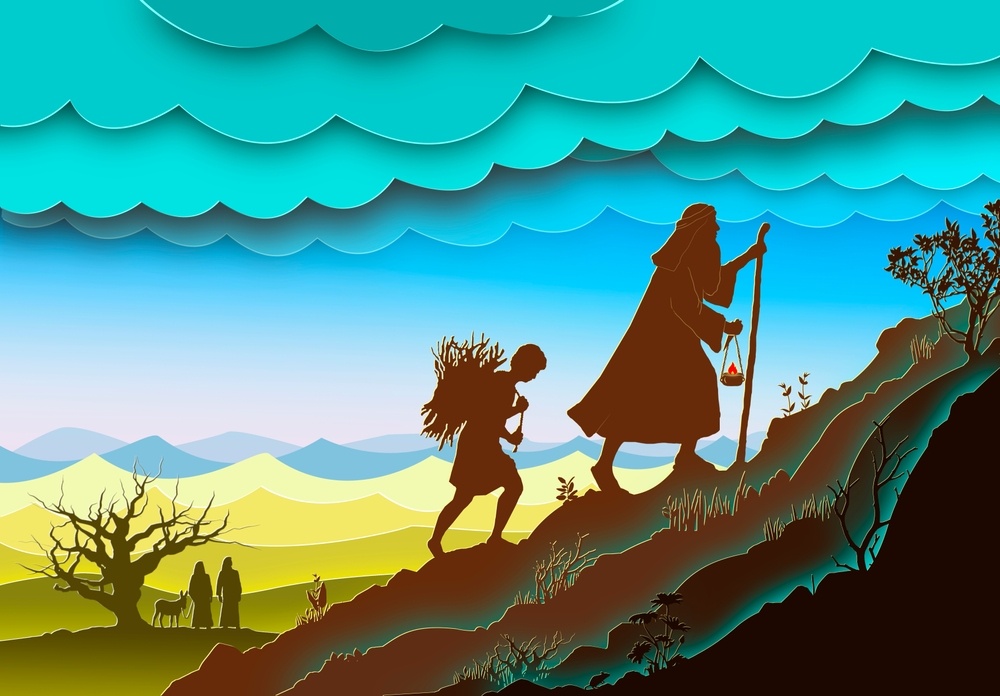
Abraham is the founding father of Judaism, Yaakov is the founding father of the Jewish people, and Yitzchak is the link between them. His role was that of consolidator, enabling Abraham’s’ revolutionary ideas to survive to the next generation. He is the quiet link, allowing others to shine in the spotlight. Yet, in a fascinating passage, the Talmud (89b) describes how Yitzchak was the one who came to the rescue of the Jewish people.
“For You are our Father; for Abraham did not know us, and Israel (Jacob) does not acknowledge us” (Isaiah 63:16). Noting the omission of Yitzchak, Rav Shmuel bar Nachmani, in the name of Rav Yochanan, teaches of the role Yitzchak played in defending his descendants. In the future, Rav Shmuel teaches, G-d will approach Abraham, saying that his children have sinned. Yet instead of defending them, Abraham will respond, “Master of the Universe, let them be destroyed for the sanctification of Thy Name”. G-d, apparently “startled” by this response, will then approach Yaakov, as “he knows the difficulty of raising children; perhaps he will ask for mercy for you”. And Yaakov’s response? “Master of the Universe, let them be destroyed for the sanctification of Thy Name”.
Clearly dissatisfied, G-d exclaims, “There is no reason in old men, and no counsel in children!” and moves on to Yitzchak. Immediately, Yitzchak challenges G-d’s premise: “my children, and not Your children? At the time they said ‘Na’aseh v’Nishma’, You called them, ‘My children, My eldest’ (Shemot 4:); and now, they are my sons, but not yours?”
(Note: While this verse is actually from Parshat Shemot before Moshe’s first encounter with Pharoah, the Maharsha explains that G-d referred to us as His eldest because He knew we would accept the Torah. Alternatively, he suggests following other manuscripts that eliminate this line of text.)
Yitzchak then proceeds to minimize any actual sinning of the Jewish people. A person lives for 70 years, he argues; the heavenly court does not punish until the age of 20, a person sleeps for 25 years of his life (wow!), he spends half (according to Yitzchak) of his time in prayer, eating and going to the bathroom; so how much sinning can one actually do? “If You will bear them, great; if not, I will take half and You take half. And if You say it should all be on me, I offered myself to You [at the Akeidah].
In the olam haemet, the World (to Come) of Truth, it will be so clear that sinning is wrong that it will be hard to defend. While, from our earthly perspective, there are all kinds of excuses—some better than others—for sinning, in the World of Truth those excuses will look silly. Many get a taste of this notion as they age and look back on their youthful indiscretions, which at the time did not appear so foolish.
Abraham and Yaakov were concerned for the sanctification of the Divine Name. Yitzchak had already “done his part”. What greater sanctification of G-d‘s name could there be than Yitzchak’s willingness to die on the altar? He did not yet know that G-d wants Jews to sanctify his name through life, rather than death. Furthermore, his encounter with the Divine blinded him—literally and figuratively—to evil in others. He saw only the good in others, and could easily be fooled by an Eisav. If G-d tells him that his descendants are sinning, it must be something relatively minor; something that, in his merit, should not bring any punishment.
Both approaches—of Avraham and Yaakov on the one hand, and Yitzchak on the other—have their place. If we do not sanctify the name of G-d in all that we do, we deserve punishment. On the other hand, the fact that after all that has befallen the Jewish people, there are still proud Jews is the greatest sanctification of the Name we can give, leaving no room for further punishment.



